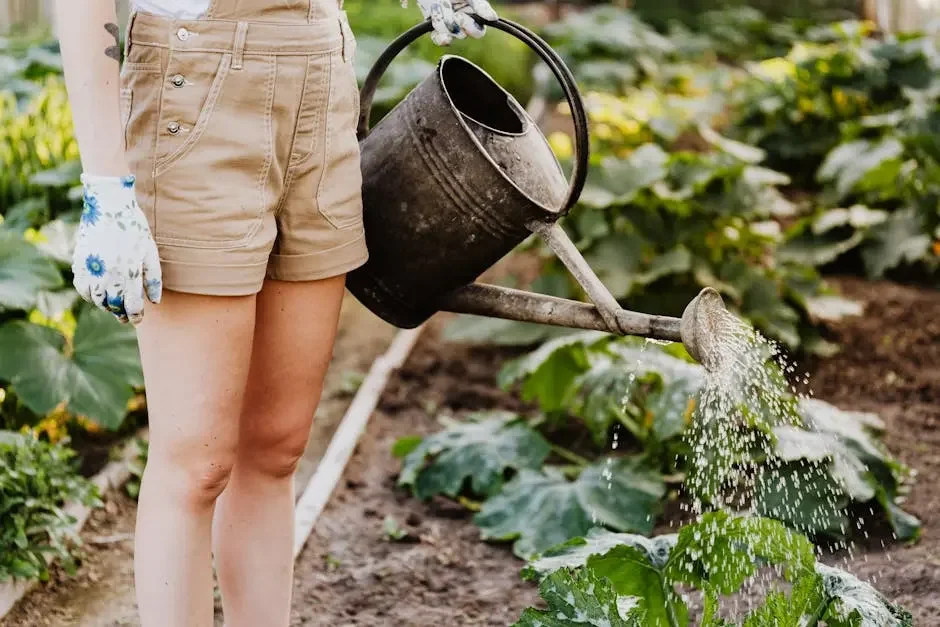Maximizing Water Conservation with Smart Landscape Maintenance in Dallas
In Dallas, where the scorching summers can be unforgiving, finding efficient methods to conserve water is crucial. By adopting smart landscape maintenance practices, residents can not only preserve water but also enhance the beauty and health of their gardens. Let's explore how simple changes can make a big difference.
Understanding the Dallas Climate and Its Impact on Water Usage
The climate in Dallas is characterized by hot summers and moderate rainfall, which can put a strain on water resources. Knowing these climatic conditions is essential for effective water management in landscaping. The challenges posed by this climate highlight the importance of thoughtful water use, particularly in a city that experiences high temperatures that can quickly dry out soil and plants. Residents need to be proactive about moisture conservation, ensuring that every drop counts. Understanding the local climate helps make informed decisions about when and how to water plants most effectively, aiming to minimize excess water usage without compromising the health and beauty of the landscape.
Dallas' climate offers both challenges and opportunities. The heat might be intense, but it also means residents can enjoy a growing season that extends much of the year. This lengthened growing season can support a wide variety of plant species, which brings us to considering plant choices carefully. Being aware of seasonal climatic patterns not only informs irrigation needs but also affects decisions regarding plant selection, lawn maintenance, and the overall landscape design. The key is to work with the climate rather than against it, a strategy that promotes both water efficiency and landscape vitality.
Choosing Drought-Resistant Plants
Opting for native and drought-resistant plant species can drastically reduce the need for frequent watering. Discover which plants thrive with minimal water and still add vibrancy to your garden. Native plants, such as Texas Sage, are perfectly adapted to the local environment, requiring significantly less supplemental irrigation. They not only endure the heat but can also provide a burst of color and texture, giving your garden a unique local character.
Selecting the right species is not just about survival; it's about thriving with minimal resources. Drought-resistant plants, like Lavender and Yarrow, have special adaptations that allow them to conserve water, such as waxy leaves or extensive root systems. By integrating such resilient plants into your garden, you are making a sustainable choice that contributes to water conservation efforts in Dallas. Moreover, these plants often attract beneficial wildlife, such as pollinators, which can enhance the ecological balance of your outdoor space.
Implementing Efficient Irrigation Systems
Smart irrigation systems, such as drip irrigation or soaker hoses, deliver water directly to the roots, minimizing waste. Learn how these systems work and their benefits for your landscape. These technologies are designed to target the specific water needs of various plants, ensuring that no excess water is wasted. With features like soil moisture sensors and timers, they can provide water at optimal times of the day, reducing evaporation and runoff. These systems are particularly beneficial for those looking to integrate efficient water practices into their garden routine without the need for constant manual intervention, saving both time and water.
Embedded with modern technology, smart irrigation systems can even adapt to changing weather conditions. For instance, smart controllers can automatically adjust watering schedules based on recent rainfall or forecasted weather patterns, ensuring that no water is wasted. This makes them a perfect solution for Dallas homeowners seeking to maintain lush landscapes while adhering to water conservation principles. Investing in these systems may initially seem costly, but they pay off in reduced water bills and healthier plants that require fewer resources to thrive.
Mulching: A Simple Yet Effective Technique
Mulching is a cost-effective way to retain soil moisture and reduce evaporation. We'll guide you on how to choose the right mulch and apply it effectively in your garden. Organic mulches, such as bark chips or straw, can improve soil quality over time as they decompose, providing nutrients back to your plants. Inorganic options, like gravel or pebbles, are particularly useful for areas prone to weeds, as they can prevent growth while maintaining soil moisture. Whatever your preference, mulch acts as a protective barrier between the soil and the elements, locking moisture in and reducing the necessity for frequent watering.
The application of mulch is both an art and a science. It's important to apply a sufficient layer—usually 2 to 4 inches thick—uniformly across exposed soil surfaces to optimize its moisture retention capabilities. Mulch can also moderate soil temperature, keeping roots cool in the hot Dallas summers. By incorporating this straightforward technique into your landscaping practices, you can help ensure that each drop of water is used efficiently, nurturing vibrant and resilient gardens even in the face of extended dry spells.
Practical Water-Conserving Tips for Gardeners
From collecting rainwater to timing your watering schedule wisely, these tips are easy to implement and can significantly reduce water usage while maintaining a lush landscape. Rain barrels are a straightforward way to capture and store rainwater from your roof, which can then be used during dry periods. When setting a watering schedule, it's best to water during the early morning or late evening to minimize evaporation. Combining these practices with efficient irrigation and drought-resistant plants creates a water-wise garden that thrives in Dallas' climate.
Another handy tip is to group plants according to their water needs, a practice known as 'hydrozoning'. By grouping plants with similar watering requirements, you can customize the amount of water each zone receives, reducing waste. This strategic organization can become a core part of sustainable landscape planning. Over time, such thoughtful approaches enable you to maintain a vibrant garden that is resilient to harsh weather, while simultaneously supporting broader environmental conservation efforts.
A Sustainable Future Through Smart Landscaping
Embracing smart landscape maintenance can transform your outdoor space into a sustainable haven. By implementing these practical tips, Dallas residents can conserve water effectively, helping both their gardens and the environment flourish.

